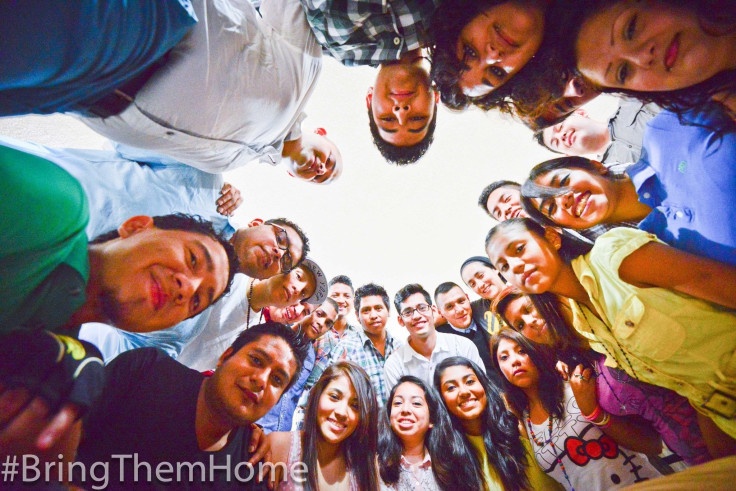
30 young undocumented immigrants will try to re-enter the United States on Monday when they present themselves to US Customs and Border Protection agents at the Laredo, Texas port of entry, reported the Arizona Republic on Sunday. The group, which calls itself the "Dream 30" after the earlier "Dream 9" of immigrant activists who sought asylum at the border in August, seeks to protest the Obama administration's deportation policies and help drum up support for a reform of the nation's immigration system which would provide a path to citizenship for many of the nation's estimated 11 million undocumented immigrants.
When the "Dream 9" showed up at a Nogales, Arizona port of entry to ask for entry this August, the nine members of that group were held for 17 days at the Eloy Detention Center, where they staged a hunger strike, before being released as their petitions for asylum go through the courts. The average processing time for those who request asylum at the port of entry is about four years. According to the National Immigrant Youth Alliance, which organized the "Dream 30" protest, this group of youths will - like their predecessors - show up at the Laredo port of entry wearing graduation caps and gowns and ask to be permitted into the United States. Most of the youths are currently living in Mexico, where they were born, but were raised in states including Arizona, California, Georgia, Florida, Illinois, Indiana, Massachusetts, Michigan, Minnesota, North Carolina, New York, Ohio, South Carolina, and Texas.
Louis DeSipio, a political science professor at the University of California, Irvine, told Fusion that the protest from the "Dream 30" is unprecedented, saying, "There's certainly never been a border crossing of DREAM activists of this size." He added, "It reflects a steady growth and diversification of the challenges that the DREAM activists are mounting to US immigration policy." Asylum petitioners face an uphill battle, but particularly if they come from Mexico. Only 29 percent of all those who seek it are awarded it; among Mexican nationals, that figure goes down to just 2 percent of those who apply.
Activist Rocio Hernandez Perez, 23, told Opposing Views that since coming to North Carolina at age four, she feels she and her peers are just as American as anyone else. "Our hearts belong to the U.S.," she said. "They tell us that's a place where we legally don't belong, but we can't keep quiet anymore. We have decided to take the matter into our own hands, to do whatever it takes to get back."
RELATED: Could House Republicans Consider Immigration Reform Bills This October?
© 2025 Latin Times. All rights reserved. Do not reproduce without permission.




